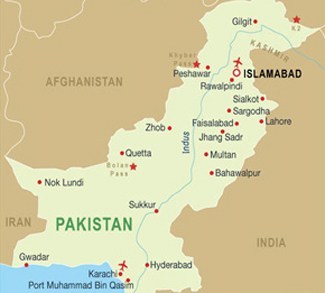Summary
As American presidential campaigning intensifies, we are seeing a convergence between the candidates and the Bush administration on the issues of Iraq, Iran and Afghanistan. What seems clear now is that the next American president will withdraw troops from Iraq, refocus on the Taliban and Al Qaeda in Afghanistan, and hold direct negotiations with Iran.
Analysis
Where Iraq is concerned, the rhetoric of Democratic presidential nominee Barack Obama and the Bush administration has become significantly more similar. Recent statements by Obama suggest that he has shifted away from a strict 16-month timetable and towards pulling out troops quickly but in consideration of facts on the ground. Meanwhile, news broke last week that the Bush administration has relinquished its “no timetable” policy, agreeing to what they called a “time horizon”, wherein up to three combat brigades could be pulled out by the end of the year. As for the Iraqi position, Prime Minister Nuri Al-Maliki is looking past Bush towards the new administration. The Iraqi PM implicitly endorsed Obama by praising his 16-month timetable as the “right idea” in an interview with the influential German-language periodical, Der Spiegel.The Republican presidential nominee, John McCain, has held firm so far in rejecting any sort of timetable. However, various considerations would no doubt force a McCain administration to begin withdrawing troops as well. To wit: America’s forces are dangerously stretched, a majority of the American public want the troops home, Iraq has stabilized, and the Afghan theatre needs reinforcements. The major difference, therefore, between the positions of Obama and McCain pertains to the long term: McCain intends to leave a substantial American presence in Iraq, perhaps 50 military bases, whereas Obama would prefer nothing but a diplomatic mission and a small strike team to hunt Al Qaeda.
Whoever it is, the next American president will have to refocus on Afghanistan and devise a new strategy. Currently, NATO and the Afghan army are managing not to cede too much ground, but the Taliban are resurgent in the southern provinces and have a permanent safe haven along the Pakistani-Afghan border; moreover, Afghan farmers are growing more opium than ever before. Perhaps more worrying is the disarray of Pakistani politics: President Pervez Musharraf is a lame duck, the parliament is paralyzed, and the military has handed de facto self-rule to the Pashtun tribal areas in the north-west, where the Taliban and Al Qaeda range freely. Of the two, Obama’s rhetoric has been the most hawkish, but McCain would no doubt stand behind whatever “surge”-like strategy is devised by General Petraeus, who took charge of the Afghan theatre when Bush appointed him CENTCOM commander three months ago.
One important knock-on effect of removing troops from Iraq and deploying them in Afghanistan will be a softening of the Iranian position vis a vis its nuclear program, and the West in general. Since 2003, Iran’s greatest strategic fear has been the development of a new Iraq that is virulently pro-US or anti-Iranian and willing to meddle in Iran or even wage war, as did Iraq under Saddam Hussein. Thus, it is not simply a matter of coincidence that Iranian diplomats have become more malleable since the start of the American presidential campaign, and as the rhetoric from the candidates has made withdrawal from Iraq more likely. Iran also is encouraged at the prospect of a reinvigorated NATO force smashing the Taliban, Sunni extremists who are virulently opposed to Iranian Shiism.
As a result of Iran’s shift, the Bush administration has softened its stance, so much so that senior American negotiator William Burns met with Iranian counterparts in Geneva last week. This is a major about face for the Bush administration, which was pledged against direct meetings with the Iranians while their centrifuges were still spinning. This shift places the Bush administration very close to Obama’s position, and the Obama campaign will no doubt frame it as an acknowledgement by the Bush administration that its longstanding policy towards Iran has been erroneous.
Ian Speigel is a contributor to Geopoliticalmonitor.com



